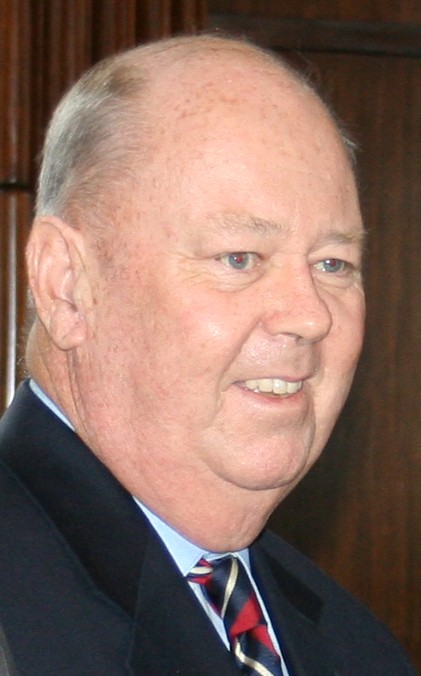PROVIDENCE – Retired R.I. Superior Court Presiding Justice Joseph F. Rodgers Jr., who had served in that role for 18 years, died at home in the Wakefield section of South Kingstown on Friday. He was 78.
Rodgers became the youngest judge in modern Rhode Island history when he was appointed to the District Court bench at age 32 by then-Gov. Philip W. Noel in 1974. Two years later, he was appointed an associate justice of the Superior Court. He was tapped by then-Gov. Bruce Sundlun in 1991 to be presiding justice, Superior Court’s chief judge.
Rodgers led the court until his retirement in 2009, but he continued working for the Superior Court as a retired justice.
During Rodgers’ tenure, he organized the nation’s first gun calendar, an initiative that was not only successful in achieving increased jail time for offenders but also dramatically reduced disposition time of gun cases from about 17 months to just over four months.
“We are all deeply saddened by the news of Joe Rodgers’s passing,” Supreme Court Chief Justice Paul A. Suttell said in a statement. “He had a remarkable career, serving for over 35 years in both the District and Superior courts, then continuing his service as a retired justice. He was responsible for many innovations. He was an inspiration to all judges and will be greatly missed by the entire Judiciary.”
“Joe was devoted to the trial court, its judges, its personnel, its legal community and the public it served,” said Presiding Justice Alice B. Gibney, who succeeded Rodgers in 2009. “He was generous with his time and countless people have sought his counsel over the years. He was, truly, a wise man. Until the end, he was blessed with lucidity and a remarkable memory. His community of family, friends and colleagues mourn his passing. There was no better judge. There was no better friend.”
A statement from the R.I. Judiciary credited Rodgers with taking numerous actions to improve the speed with which the courts dealt with criminal and civil cases, including:
- Taking steps to reduce delays of civil trials in Providence County from about five years in 1990 to less than two years by the time he retired, cutting the backlog in half, the judiciary said.
- Instituting an annual Settlement Week in December during which volunteer lawyers helped mediate civil disputes ripe for resolution.
- Creating the successful drug calendar for adult offenders, with an emphasis on improving participants’ lives in a timely and effective manner through substance abuse treatment, social services, and justice interventions, rather than jail.
- Forming the Superior Court’s business calendar to track and resolve issues affecting jobs and businesses before those companies sought bankruptcy or receivership protection.
- Reducing jury service from two weeks to two days or one trial to make the civic responsibility more convenient and enjoyable.
- Developing the Superior Court’s judicial evaluation program and spearheaded the revision of the court’s sentencing benchmarks and rules of civil and criminal procedure.
After graduating from Providence College, Rodgers earned his law degree at Boston University School of Law. He served in the state Senate from 1967 to 1974, serving as chairman of the Judiciary Committee and vice chairman of the Labor Committee. He chaired the Judiciary’s Commission of Judicial Tenure & Discipline from 1980 to 1986. He was an instructor of law at Roger Williams University and taught classes in law at Providence College and the Community College of Rhode Island.
He is survived by his wife, the former Donna Boudreau; his children, attorney Joseph F. Rodgers III, Superior Court Associate Justice Kristin E. Rodgers, and Edward Rodgers, deputy director of community affairs for juvenile services in the Family Court; and two grandchildren.













